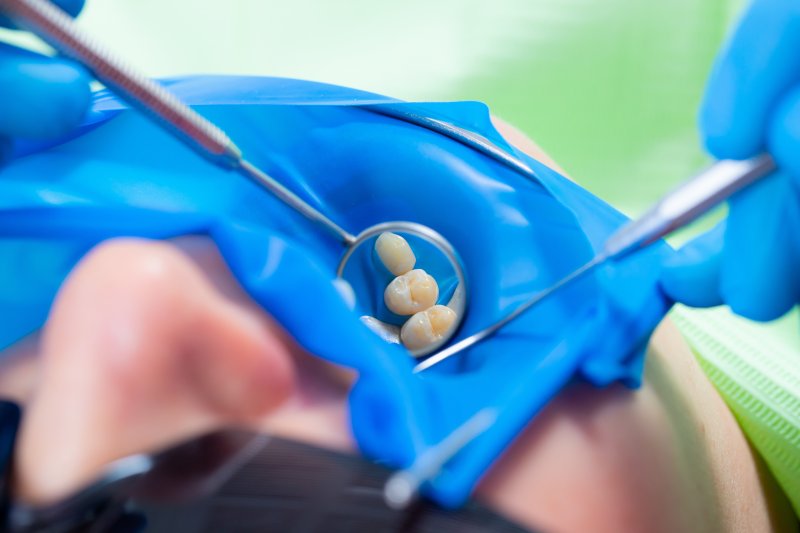Will it Hurt to Have a Root Canal?
December 18, 2020

You discover you have a severely damaged tooth that will require your dentist to perform a root canal. Fearful of your upcoming procedure, you begin to wonder if you should reschedule your appointment. After all, you’ve heard how painful these treatments can be, so why would you want to increase the discomfort you’re currently experiencing? Before you let your mind take you to the worst-case scenario, a trusted professional is here to provide an honest answer to the question, “Are root canals painful?” Read on to find out why you have nothing to fear when undergoing this common procedure and what you can do to ensure a swift and successful recovery.
The Truth About Root Canals
If you’re like most people, you’ve been led to believe that root canals are painful procedures that should be avoided at all costs. This myth is what causes many individuals to avoid necessary treatment, which ultimately leads to extraction in an attempt to save one’s oral health.
The truth is that root canals are not painful procedures at all. In fact, the discomfort you’re experiencing is not because of treatment. It is actually caused by the infection inside your tooth. When arriving for your appointment, your dentist will administer local anesthesia to numb the tooth and the area surrounding it. This will allow you to remain completely relaxed throughout the procedure and feel no discomfort.
Before you know it, your dentist will have thoroughly cleaned out the infected areas of your tooth before filling the hollow portion with gutta percha, which is a biocompatible dental filling. Once your tooth is sealed and reshaped, you’ll receive a temporary crown to wear while your permanent one is created.
Ways to Reduce Post-Operative Soreness
Once the anesthesia wears off, you can expect there to be some soreness and tenderness afterward. Fortunately, this mild to moderate discomfort is only temporary and should dissipate over time. Your dentist may recommend that you take an over-the-counter pain reliever (i.e., Advil, Motrin, Aleve) to reduce your discomfort. It is also advised that you avoid chewing on the side of your mouth that underwent surgery, as this can cause prolonged soreness. Instead, make sure you are eating soft foods in the days following your procedure and continue to maintain good oral hygiene.
If you begin to notice the pain is so severe that you cannot complete daily tasks or functions, make sure to contact your dentist’s office immediately. Your dental team will be quick to schedule an appointment and get you in to check for any complications that may have occurred.
While you may experience some mild discomfort following root canal therapy, you can rest easy knowing the infected tissue is no longer there to cause harm to your smile.
About the Authors
Dr. Luciano Marini earned his dental degree at the University of Connecticut School of Dental Medicine. Dr. Ann Marie Mancini received her doctoral degree from Tufts University School of Dental Medicine. Overseeing Waterbury Smiles, Dr. Marini and Dr. Mancini often see patients with damaged or severely decayed teeth who need root canal therapy. Working to squash the myth that these procedures are painful, they provide individuals with a method of treatment that eliminates pain caused by an infection and ensures a swift and effective post-operative healing process. If you recently learned you need a root canal, visit our website or call (203) 575-9097.
No Comments
No comments yet.
RSS feed for comments on this post.
Sorry, the comment form is closed at this time.



